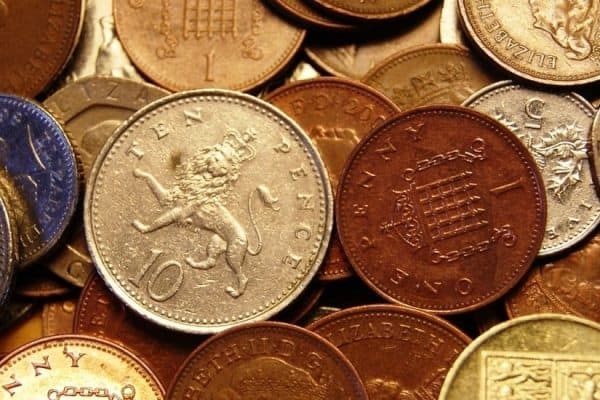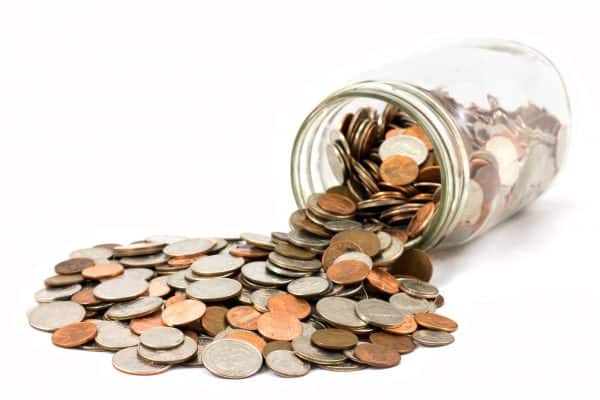Loan Or Credit Card: What’s Better?
If you need extra cash, need to spread payments, or just need to build your credit score, finding the right option for you can be difficult and confusing. Taking out a loan or using a credit card are the two ways that you can borrow money and provide a way to manage money. But which one is better and best for you – a loan or a credit card? The choice is yours to decide, but we can help uncover the difference between the two and the advantages and disadvantages of both.
Things To Know When Choosing A Loan Or Credit Card
When it comes to borrowing, you need to consider a few key points, such as:
- The balance – how much do you need to borrow, and what is it for?
- Fees and interest – can you afford to pay back the amount borrowed plus extras every month?
- Your credit score – this impacts both loans and credit cards
Related: What Is A Credit Score?
What Is A Loan?
A loan is simply money that you borrow from the bank or loan provider, which you pay back over time in instalments within a pre-agreed timeframe. You usually apply for these with a loan provider or a bank, set the amount of money that you need, and either get approved or denied based on your credit score and history. The higher your credit score, the more likely you can borrow, the higher amounts you can take, and the lower the interest rate. The lower your credit score, the harder it is to take a loan and the higher the interest rates.
Types Of Credit Loans
Loans come in many different types, such as secured and unsecured. Secured loans are those which are larger in amount, and an asset will be used as collateral. For example, when you take out a mortgage, the bank can take over your property if you default. Therefore, the mortgage is secured against the asset of the house.
Unsecured loans are for smaller amounts, usually personal or payday loans, which could be used for any type of payment, such as a new car, home improvements, paying bills or even leisure. These can range from anything as small as £50 to £25,000, but it’s common for loan companies to offer a maximum of £5,000-10,000.
Read more: Understanding Different Types Of Credit
Advantages And Disadvantages Of A Personal Loan
| Pros | Cons |
| You can apply to borrow larger amounts than credit cards – good for larger purchases | You can repay the loan early, but you may be charged an early repayment fee |
| Provides the cash in one lump sum into your account | Lack of flexibility in repayments |
| Flexibility in terms of how you spend it | May have extra hidden fees |
| Fixed repayments each month | Does not offer rewards or more credit after repayments |
| Sometimes offer a lower interest rate than credit cards |
What Are Credit Cards?
Credit cards, however, are lines of credit and offer revolving and ongoing access to funds. Similar to a debit card, you have a card that allows you access to a specified amount of money called a credit limit. But you don’t receive this money as cash in full; instead, you use it as you need it. Think of it as instead of borrowing a large sum of money at a time, you are only taking it when you need it. And you only pay interest on the funds you use instead of a larger sum. Therefore, if you have a credit card but haven’t used it yet, you won’t have any interest until you do.
You can use credit cards like you do your debit card, for paying bills, online shopping, at retailers, or anywhere where a card payment is accepted. Like a debit card, credit cards will have their own specific card number, and you can monitor payments and balance in your credit account. To pay off a credit card debt, you will just need to set up a direct debit from your bank to your credit account to offset any bills and payments. Unlike loans, credit card bills will vary depending on what you spend each month.
Advantages And Disadvantages Of A Credit Card
| Pros | Cons |
| Constant access to credit | Interest rate may be higher than a loan depending on how much you spend |
| Only charges interest when funds are used | If balances aren’t paid, interest and extra fees can increase |
| If you pay in full each month, you may avoid any interest | The credit limit is typically smaller than a personal loan |
| Paying back on time may lead to credit limit increases | Instead of cash in your bank account that you can pull out, you are limited to spending on your credit card, where services accept cards as payment |
| Flexibility in how much you pay back and when | |
| May offer benefits such as 0% interest rates for a set time or rewards | |
| Extra security when buying on a credit card through a chargeback scheme and section 75 of the Consumer Credit Act – where you can get your money back if the seller doesn’t deliver your goods or goes bankrupt, as well as making sure it’s you using the card | |
| Some providers offer 0% balance transfer, commission-free overseas use, cashback and loyalty points |
Loan VS Credit Card: What Can I Use It For?
You can use any line of credit for any use, such as a new car or phone, home improvements or emergencies, or even to pay bills or consolidate debt. The choice of how you use a loan or credit card is yours. But if you need a larger amount, it’s easy to take a loan out such as for a new house, mortgage or car. For smaller purchases, people often use credit cards such as holiday payments, bills, or just general everyday purchases where you need to spread payments.
Credit cards are more convenient as they fit in your wallet like a debit card and can be used to pay for anything as long as the purchase is less than your credit limit. So it all depends on how much you’re spending, whether you choose a loan or a credit card.
Applying For A Loan VS Credit Card
Applying for and getting approved for a loan or credit card is roughly the same process. Loans you can apply for either with a bank or loan provider, whereas credit cards can only be applied for via a bank. With a loan, you can select how much you’d like to borrow, whereas credit cards usually have a pre-instated credit limit on them. With both processes, your credit score is the most important factor in if you can get a loan or credit card at all, and if you can it determines how much you can take and the interest rates.
Related: Credit Cards For Bad Credit and Bad Credit Loans
When applying for either a credit card or a loan, you will come across soft and hard credit checks, which can tell you if you are eligible to receive either and whether you’ve been accepted or denied. Note that if you get told you’re not eligible and you continue with your application and you get denied, it could harm your credit score further.
How Credit Cards Or Loans Affect Your Credit Score
When you apply for a loan or credit card, it does affect your credit score as the company or provider will have to perform a hard credit check as part of the application process which can harm your score. But generally, the impact is low.
However, applying for too much credit can damage your credit score further, such as taking out multiple loans or having multiple credit card accounts, so it’s best to not have too many loans out at once or more than one credit card.
Related: Surprise Factors That Could Affect Your Credit Rating
When paying back your balance, whether it’s your loan or credit card debt, it’s important to make payments on time. Missing payments can harm your credit score and even add interest and extra fees, so you end up paying back more over time. Paying back on time and, eventually, in full can improve your credit score as it shows you are a responsible borrower. For more ways to increase your rating, our guide on How To Improve Your Credit Score can help.
What About Buy Now Pay Later?
Buy Now, Pay Later (BNPL) plans are those which are neither a loan nor credit card, but still a line of credit. You don’t have to have a credit card or loan in order to use buy now pay later instalments such as Klarna. These are great for financing purchases online and is a credit agreement where you can choose to pay in 3 instalments over 3 months, or finance for up to a year of monthly payments.
Many buy now, pay later plans allow you to avoid interest entirely if you stick to your payment schedule and pay on time. Falling behind, however, can risk damage to your credit score. If you are thinking about smaller payments, it’s best to either use a credit card or utilise the buy now pay later when checking out if it’s an option as these are best suited for smaller and short-term purchases to help spread payments. Just note that this does still count as borrowing and, therefore, does affect your credit score.
Should I Take Out A Loan Or Credit Card?
Knowing if it’s better to get a loan or a credit card is up to you and depends on how you spend the money. While both are ways to borrow money, they have their own pros and cons to consider. If you rely on cash, need a larger sum, like the idea of making fixed repayments then a loan is better suited. Whereas if you are looking to borrow money as and when you need it, have a constant flow to credit and like flexible payments then a credit card is better, or using the newer buy now pay later and finance plans.
Whatever choice you make, make sure that you make payments on time to keep on top of your credit score and borrow responsibility. As well as making sure you don’t buy too much on credit and rack up debt that you can’t keep up with. To help you manage and budget your money, we have lots of money-savvy tips on our Good Vibes blog.



















